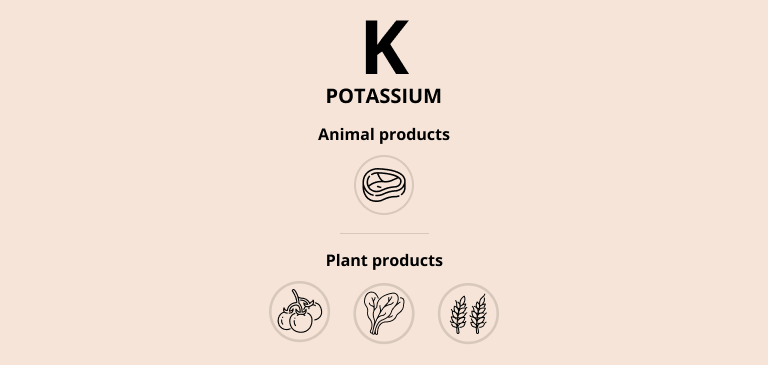Potassium
Year of discovery: 1807 | Humphrey Davy
Potassium is the main positively charged ion (cation) in our cells. Its main function is to keep us alive. Potassium is essential for maintaining proper water-electrolyte balance, enzymatic reactions, cell integrity and muscle contractility. Potassium and sodium are pumped across the cell membrane. This is the process that controls the transmission of nerve impulses. Potassium found in natural, unprocessed foods is often bound to an organic anion (such as citrate). Organic anions play an important role in buffering acids produced by the body when metabolizing meat or protein-rich foods. These acids can demineralize bones and increase the risk of kidney stones.
Main sources of potassium
Fruits and vegetables, especially such as tomato, cucumber, zucchini, eggplant, pumpkin, leafy and root vegetables, cereals, meat, legumes.
Risks associated with insufficient or excessive potassium intake
Moderate potassium deficiency is associated with increased blood pressure, increased risk of kidney stones, bone demineralization and stroke. Certain types of diuretics (e.g., thiazide diuretics or furosemide), alcoholism, severe vomiting or diarrhea, laxative abuse or overdose, mental anorexia or bulimia, magnesium deficiency and congestive heart failure (CHF) are all associated with an increased risk of potassium deficiency. Potassium poisoning does not result from overeating potassium-rich foods, but can result from excessive intake of potassium salts or supplements (including some protein shakes and energy drinks) and result from certain diseases or treatments.



